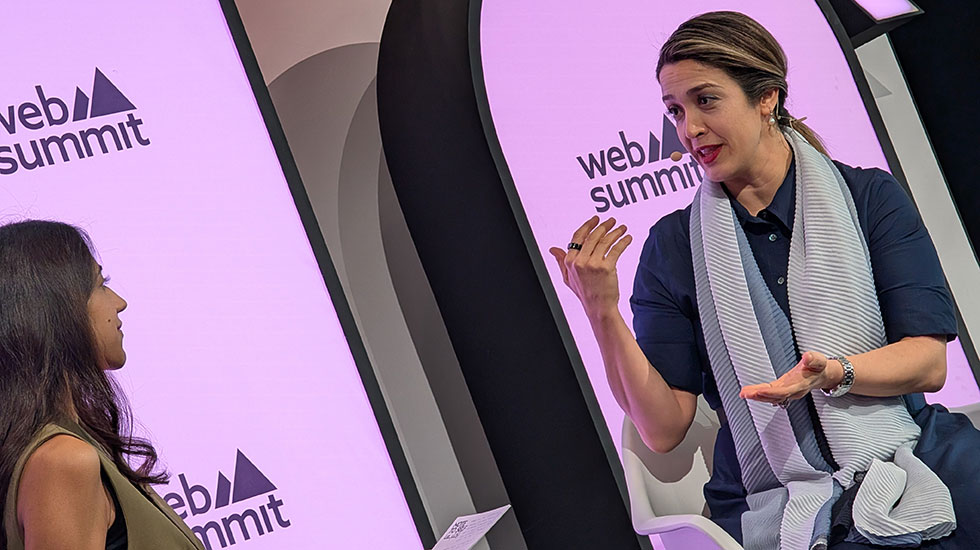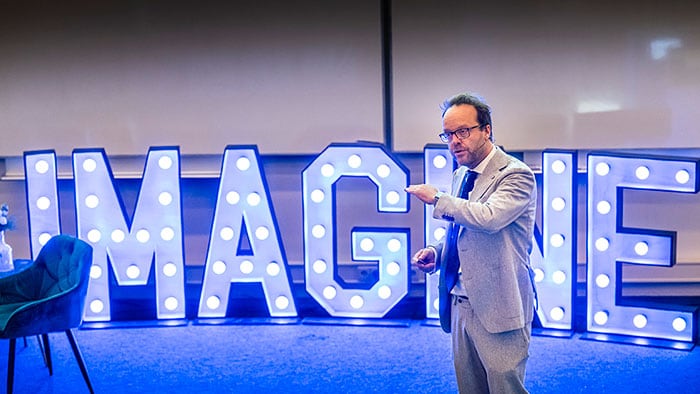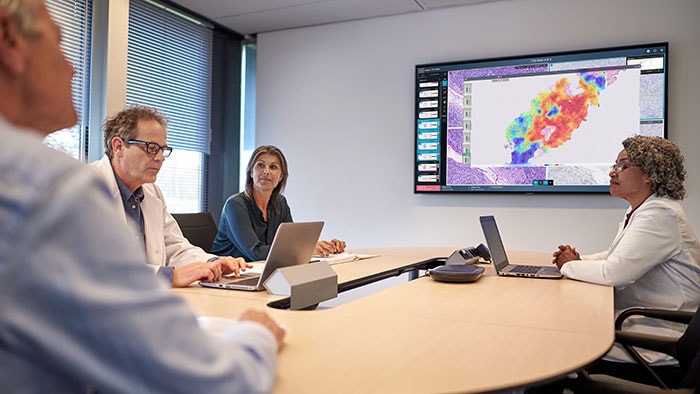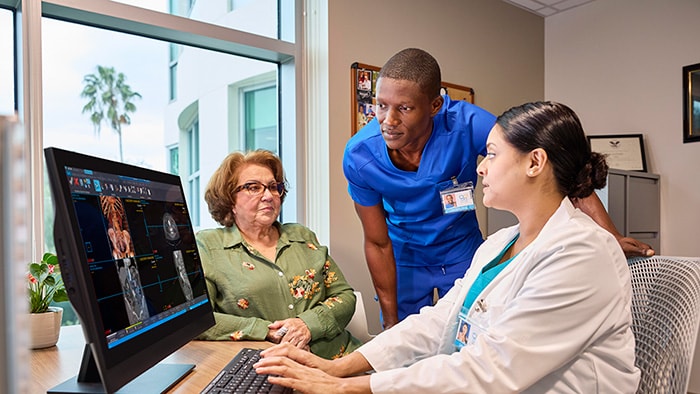Philips’ Betsabeh Madani Hermann discusses innovation leadership and healthcare transformation at WebSummit Qatar 2025
Mar 20, 2025 | 3 minute read
At WebSummit Qatar 2025, Betsabeh Madani Hermann, Global Head of Research at Philips and one of the driving forces behind the company’s global innovation strategy and its execution, took the stage to showcase how Philips is transforming healthcare through breakthrough technologies and deep clinical collaboration. In a fireside chat with Jamila Ghandi, Editor at Forbes Middle East, Betsabeh shared the core principles that guide Philips’ innovation approach, leveraging the latest in artificial intelligence (AI) and predictive analytics, along with clinical expertise, to help clinicians make faster, more accurate decisions and ultimately improve the health and well-being of people around the world.
Betsabeh Madani Hermann at WebSummit Qatar 2025
WebSummit Qatar 2025
As a leading global event for technology and innovation, WebSummit Qatar brings together pioneers from across industries to tackle today’s most pressing challenges. At this year’s event, Betsabeh illustrated how Philips is building on its 134-year legacy of innovation to develop transformative solutions that enhance diagnostic accuracy, support clinicians under pressure, and expand access to high-quality care.
What's been consistent throughout the history of Philips is this willingness to reinvent yourself, which is the essential ingredient if you're looking at innovation. You can't innovate for the future if you are living in the past.
Addressing urgent global healthcare challenges
Betsabeh highlighted the mounting pressures on healthcare systems worldwide, from workforce shortages to rising chronic disease burdens, and emphasized the central role of technology in scaling expertise and improving access. Philips’ innovations, such as AI-enabled imaging platforms, are aiding clinicians in identifying cancer and stroke earlier, which can enhance treatment effectiveness.
“These innovations are not just about better technologies; they are the tools that support healthcare professionals in making life-saving decisions faster and with higher precision,” Betsabeh explained.
Pioneering breakthrough technologies
Betsabeh walked the audience through Philips’ approach to breakthrough innovation, which brings clinical experts and technologists together in the earliest stages of development, ensuring solutions are made to address real-world clinical needs. By integrating AI-powered clinical decision support, automation in minimally invasive procedures, and predictive analytics for personalized care, Philips is not only enhancing patient outcomes but also reducing clinician workload and improving workflows.
She also highlighted Philips’ dual-track exploratory innovation model, where exploratory teams from across Philips can apply and develop near-term solutions, while the breakthrough innovation teams pursue longer-term, transformative bets that could redefine entire care pathways.
Innovation with integrity and purpose
At the heart of Philips’ innovation strategy is a commitment to responsible innovation. Betsabeh stressed that ensuring patient safety and clinical accuracy remain top priorities. Additionally, under her leadership, every project in Philips Research has been undergoing pre-mortem exercises, where teams proactively identify potential risks, envision failure before development even begins, and take preventative measures to improve decision-making. Teams continue to identify what the gaps may be in order to tackle them early.
“We are creating technology that people can trust because, in healthcare, trust is everything,” Betsabeh said.
A collaborative path forward
Betsabeh closed the conversation with a call to action, emphasizing that the future of healthcare innovation must be collaborative. From clinicians and engineers to researchers, AI specialists, and policymakers, she called for greater cross-sector cooperation to ensure that technology not only drives efficiency but also makes care more equitable and accessible worldwide.
“Innovation doesn’t belong to R&D only, and it doesn’t happen in silos,” she concluded. “It happens when we bring different perspectives together, united by the common goal of improving health for everyone, everywhere.”
As Philips continues to invest in next-generation technologies, the company remains committed to delivering innovations that empower clinicians, improve patient outcomes, and advance global health equity.









